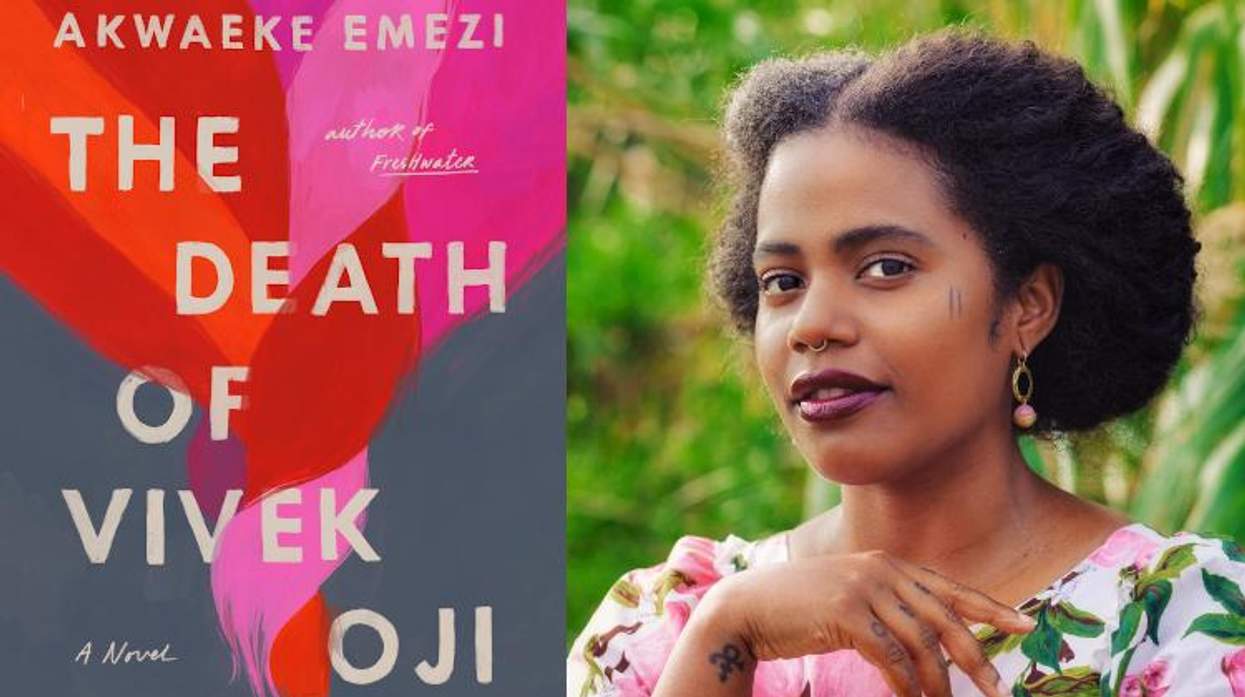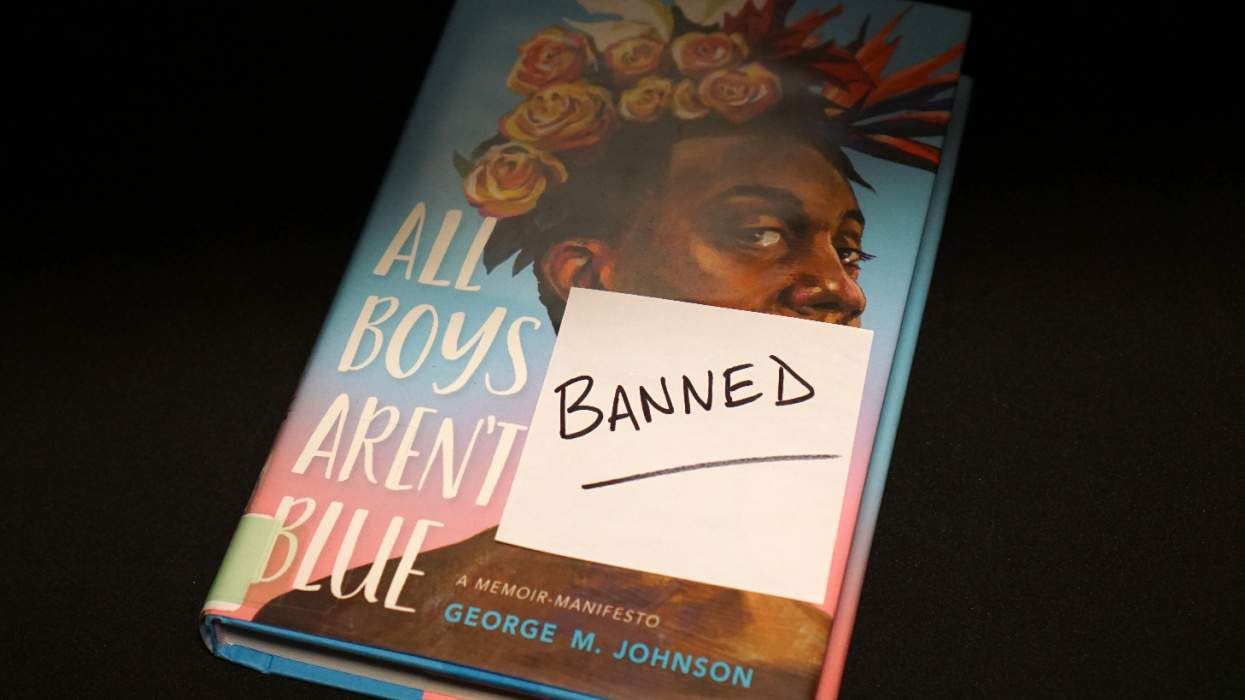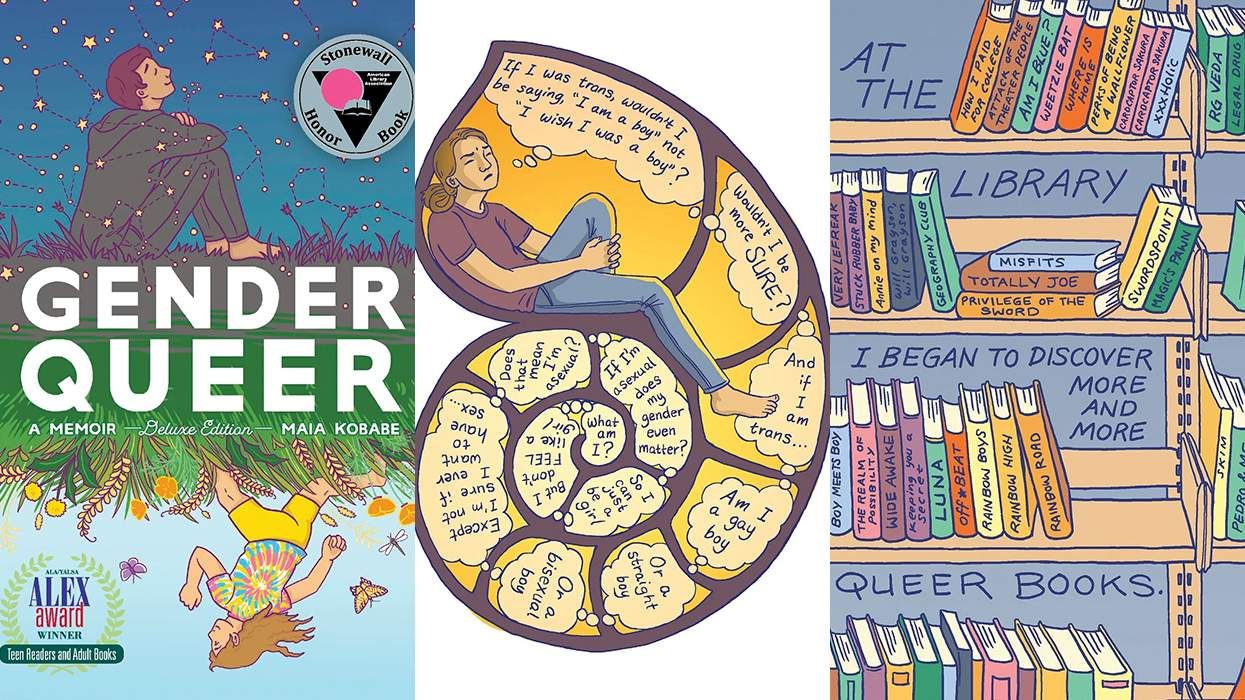This interview was conducted as part of the podcast, LGBTQ&A.
Akwaeke Emezi has written a new kind of queer coming of age story: there are no labels, no grand coming out scenes, no bullying or violence stemming from the main character's LGBTQ+ identity. Set in Nigeria, The Death of Vivek Oji tells the complete story of this one queer life, from birth to death.
Like in life, death is a constant presence in the book. "I like to talk about death a lot." Emezi says, "This is the experience for a lot of queer people, that death really is a constant companion." The author of the critically acclaimed debut, Freshwater, and the YA novel, Pet, speaks with the LGBTQ&A podcast about why we need to talk more about death, shaving their head, and their new novel, The Death of Vivek Oji (available August 4).
Read highlights from their interview on LGBTQ&A below and click here to listen to the full interview.
Jeffrey Masters: Can you talk about the decision not to use any labels like queer or transgender in telling the story?
Akwaeke Emezi: Well, one of the first reasons was that Vivek is set in the Nigerian community that I grew up in. Growing up, queer and trans just weren't part of our vocabulary, at all. And it also is a very Western thing, these specific labels. And I wanted to write a story about a queer kid who doesn't need to use these specific labels to still be what they are.
JM: Despite the title of the booking having "death" in it, the first line having "death" in it, it's a surprisingly romantic book.
AE: Yes, I was very proud of what I was able to do with that in the book. Also, I was just really happy to get to write sex scenes. Those were my favorite parts of the book.
Even with Freshwater, the sex scenes aren't sexy in my mind, because there's always a question of consent in every single one. So to me, Freshwater doesn't have sex scenes. It just has a lot of really violent encounters that are masked to look like sex scenes.
One of the things I wanted to do was write a relationship that was transgressive, just because I'm interested in those and still have the reader believe in that love and be rooting for it.
JM: You've said that writing Freshwater, that there was a you that existed before that book and you that existed after that book. Why was that book so challenging compared to your others?
AE: Freshwater is a book that shifts realities. My mother's family is very Catholic. And when I started thinking about Freshwater, I knew I would have to get into Igbo traditional religion. And that was scary to me because it's not something we were raised with back home. It's seen as deviance and taboo.
Shifting gears to see the world through this lens of a religion that had been almost stamped out by colonialism, to the point where my entire childhood this was not considered a valid reality. And in order to write Freshwater, I not just had to engage with it, but I had to adopt it as my center. I had to say this is real.
And that's a really challenging step to take when I've been socialized otherwise my entire life. I finished writing the book and my life made so much more sense through this lens than it had through any of the other lenses. And it wasn't like a jacket I could put on and then take off when I was done with the book. It was a jacket I put on and then I was like, "Oh, this is my skin now. Fantastic."
JM: A lot of your writing deals with death. What were you taught about death growing up in Nigeria?
AE: I don't know necessarily if I was taught about death specifically. I can say that, for me, now death seems just like a thing that happens. I find that what people are opposed to around death is not so much about death but suffering. It's either the suffering of the person leading up to their death, the suffering of the people left behind, the loved ones.
Because if you're the dead person, you're just dead, you don't have feelings about it. You're just not here anymore. But what we often have a strong reaction to is suffering. If you died in a painful way, if you suffered before you died, if the people around again are suffering. And I think for me, it's been important to draw that distinction.
JM: Death is something we want to talk more about but don't know how. We end up repeating the same cliches.
AE: I think when you give people the space to talk about it, then you can see what unfolds within that space. I like to talk about death a lot. I think this is the experience for a lot of queer people, that death really is a constant companion, with us specifically. And it's present in a way that other people might not think about...either at the hands of other people or death by suicide. It's a thing that's always there. And so I think it's important to be able to talk about it because it affects so much of our lived experience.
JM: And you have "dead thing" tattooed on your chest. Was that done recently?
AE: I think I got it last summer, or within the last year. And it was based on this concept that I had explored in some of my writing...the word Ogbanje roughly translates to "someone who comes and goes". It refer to the ones who are born to die. [Emezi is an Ogbanje.]
It's like if you are a thing that is born to die, then you're dead, even while you're alive. And kind of an acceptance of death in the process of life. Interestingly, this pops up in a lot of other places, I was reading Rumi, pretty extensively. And there are quotes in there that say in order to live a new life, you have to die first in this one and like the death of self, and what that looks like. So all those things work around in my brain.
JM: In your author photo, you have big, beautiful hair. Was it a big decision to shave it all off?
AE: I have shaved my head before. Interestingly, this time, it was scary for me to cut it again. Mostly because I was worried it would trigger like body dysmorphia issues from my childhood and I thought that I had to be really, really skinny to be able to pull off short hair.
Once I told my friends that and they realized that that was the reason I had been keeping my hair long they were all like, "Cut it now." Running towards fear. And I didn't want to keep living in fear of something. And also I felt like it would strip away a certain attractiveness, a certain kind of conventional attractiveness.
I grew my hair deliberately for my book career. I grew it, on purpose, because I was like, When my books come out, I want to have really, really long hair. I just feel like it'll work better. It was very mercenary and very calculating about how society views beauty and how it was planning to take advantage of every single thing I could, in order to make myself feel more established. And people we'll say, "Oh, well, it made no difference we will never know." But I didn't want to keep living in fear.
So I was like, You know what, let me shave it off. Let me see what happens if I don't feel attractive if other people aren't finding me conventionally attractive. If I step into deviance in a certain way, I just sit with that. I'm just like, It's okay to just have a body. It exists.
[SPOILERS: The rest of the interview includes spoilers.]
JM: I want to talk to you about the decision to dead-name the character in the title of the book. Was that a worry or qualm?
AE: No. Because Vivek is gender nonconforming. I think there's only one point where something is said explicitly about how he identifies and it's said by his friends, by the people who are closest to him. It says that he was okay with either/or. And so that was something where I was like, What does it look like to not buy into a very Western binary where you have one name and then you have another name? And that means that your identity before was invalid, your self-expression before was invalid. And I wanted readers to sit with that he was valid the entire time. No matter what he wore, no matter what pronouns she used, Vivek was Vivek the entire time.
Really the conflict that Vivek goes through isn't about gender or sexuality. It's a spiritual one. And part of the reason why I had even kind of gone into that was, coming off of Freshwater and this interest in Igbo culture and Igbo reality.
Reincarnation is a huge thing. And I really wanted to explore that with Vivek. I wanted to play with this idea, which is fictional, of what happens if a child is reincarnated and they don't recognize the child as a reincarnation because of the gender that they assigned to the child and so they don't name the child properly. And what if this just causes spiritual turmoil because they didn't name the child properly?
It's a thing about naming and spirit, not about gender, actually. Gender is involved in it, but the thread that's really the point of it all is spiritual.
JM: It's about his spirit, not just his gender.
AE: I think also part of the thing is recognizing every step of the journey as legitimate. It's an important part of how we treat queer kids in the world today. Vivek is...It's a coming of age story. And it's not a linear journey for people. You find people whose identity shifts constantly. And it's like, "Oh, well, I'm feeling this," and then you figure out sexuality and it's like, "Oop. Gender's entered the chat." And now you figure that out.
And it doesn't mean that whoever you were before or whoever you identified as wasn't real. What if we recognize that all those different points in the journey are true places as well?
The Death of Vivek Oji is available on August 4.
Click here to listen to the full interview with Akwaeke Emezi.
LGBTQ&A is produced by The Advocate magazine, in partnership with GLAAD.















Charlie Kirk DID say stoning gay people was the 'perfect law' — and these other heinous quotes
These are some of his worst comments about LGBTQ+ people made by Charlie Kirk.